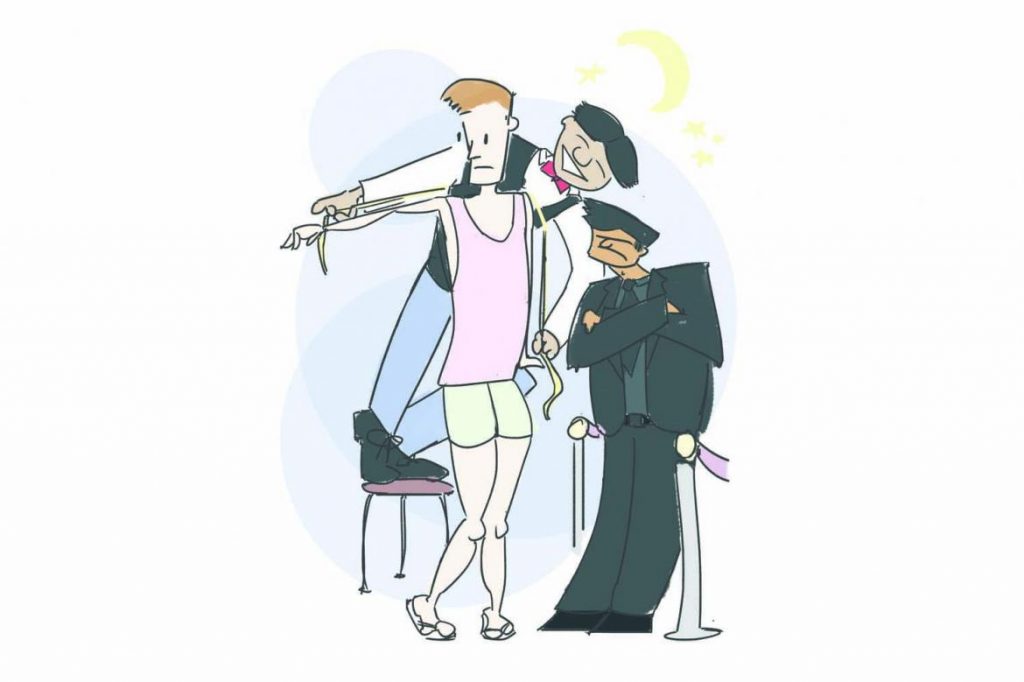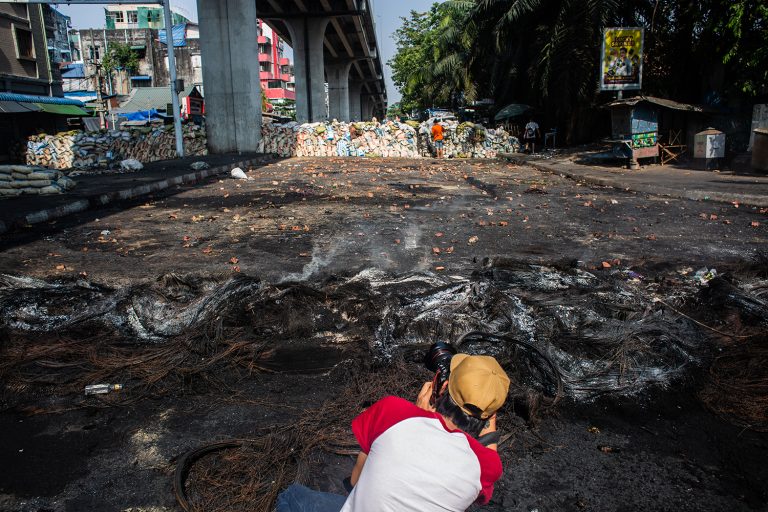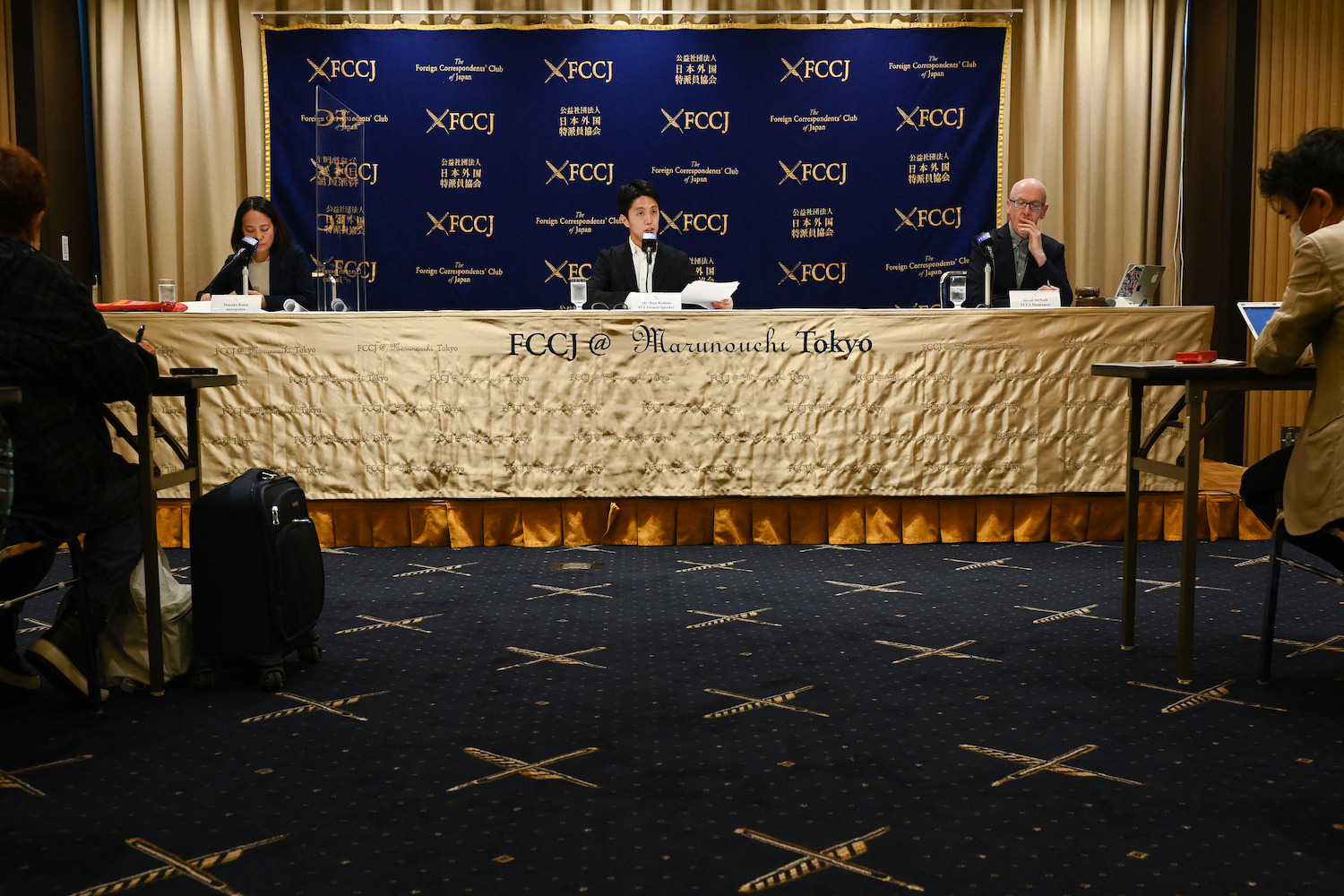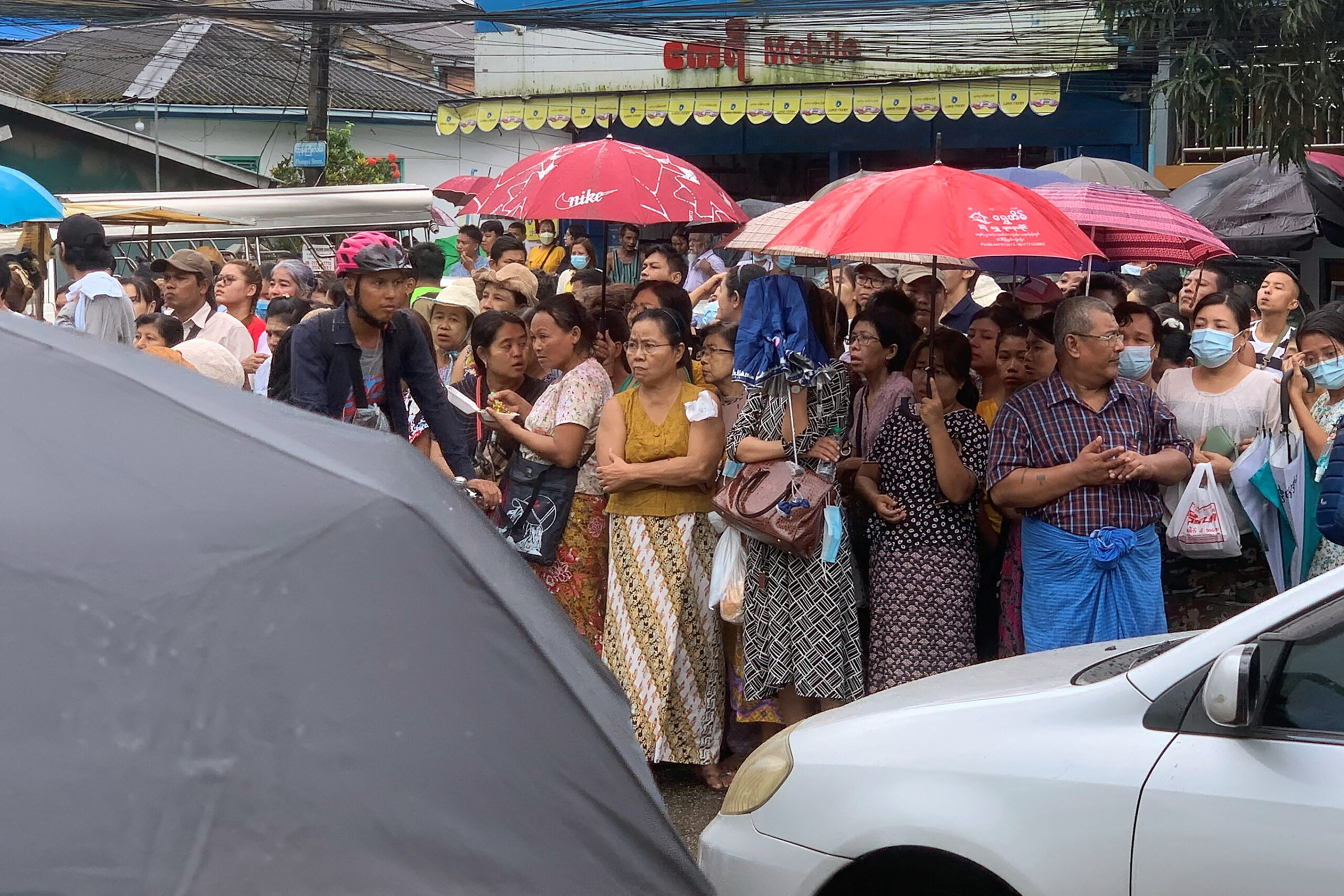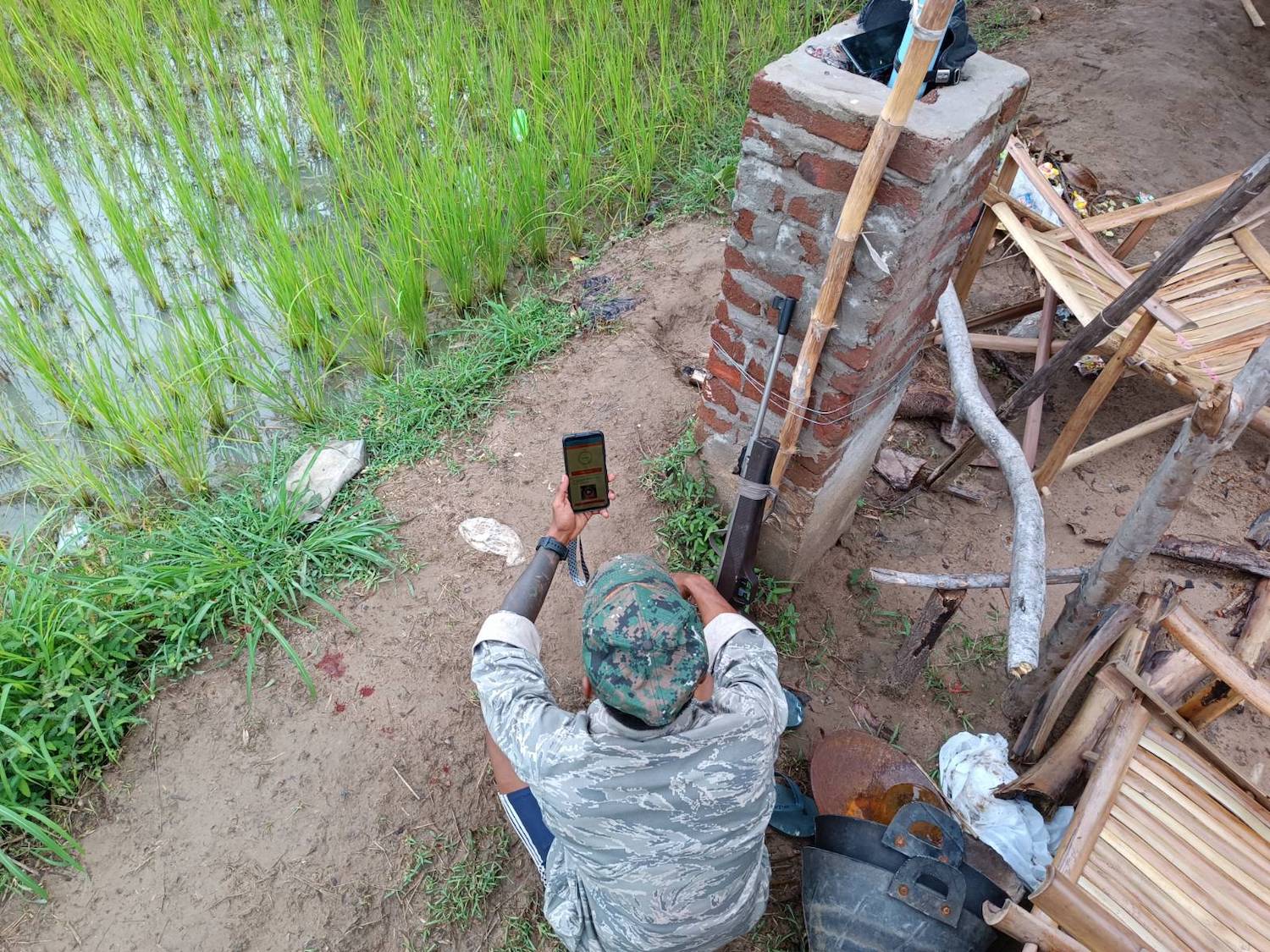If using your position as a journalist to convince a Bangkok tailor to lend you a suit and shoes off his own feet in exchange for a story is wrong, I don’t want to be right.
By JARED DOWNING | FRONTIER
In defence of my journalistic ethics, I needed the outfit to get into a club that was really cool – a basement cocktail joint called Maggie Choo’s modelled after a 19th century Siamese speakeasy, complete with exposed masonry, Victorian armchairs, live jazz and a strict dress code. The doorman took one look at my shorts and sandals and told me to hit the bricks.
Fortunately, there was a high-end tailor’s shop next door, The Elegant Bespoke Tailor. On a long shot, I asked a man who called himself Mike if I could rent a pair of trousers for an hour or so. Of course, his answer was “no” and it might have stayed that way if I hadn’t learned that he was a Myanmar-born person of Nepali descent who had moved to Bangkok from Myitkyina.
I then announced myself as Jared Downing, senior reporter at Frontier Myanmar magazine whose writing is read by tens of people every year, and a fervent buyer of suits. Liberal Tailor at Bogyoke Market, which has been in the menswear biz since the 1960s and outfitted Barack Obama during his visit (really), offers custom three-piece suits for about US$100.
After four years in Myanmar, my collection includes a black suit, a navy suit, a bright blue summer suit, a checked grey suit, a burgundy suit, a beige suit, a houndstooth sports coat, a shiny grey blazer and – the jewel of my collection – a coat woven with metallic thread of two different colours that shimmers orange and green like a sunrise on a lake.
Support more independent journalism like this. Sign up to be a Frontier member.
Mike gave me a tour of his shop’s extensive collection of fabrics and told me where the best wholesalers were. He explained how any fabric marked “100% Italian wool” is actually a polyester blend from China, but it doesn’t matter because at a certain point you can’t tell the difference. He also showed me how to test a fabric’s quality by burning a small sample with a lighter: If it smells like burnt hair, it’s the good stuff. If it’s gummy, like melted plastic, it’s cheap.
Mike isn’t the only Myanmar-born tailor in Bangkok. Many Myanmar-Nepali families migrated to Thailand from 2008 onwards after American sanctions hurt business in the north, especially the ruby trade that flows from Mogok. He has since made a steady living as a tailor, but said his true passion was translating Buddhist prayer books into Nepali and posting them on his Facebook page.
“I came to make money, but I can’t [realise] my dream. Real life and your dreams can be so different,” he lamented. “But it’s better than nothing. Now I am a good tailor.”
Half an hour later, the doorman at Maggie Choo’s looked up from his phone to see the same scruffy white guy from before outfitted in a pin-striped suit and fine black leather loafers.
“Hey. You look pretty good,” he said.
Damn right I looked pretty good.


